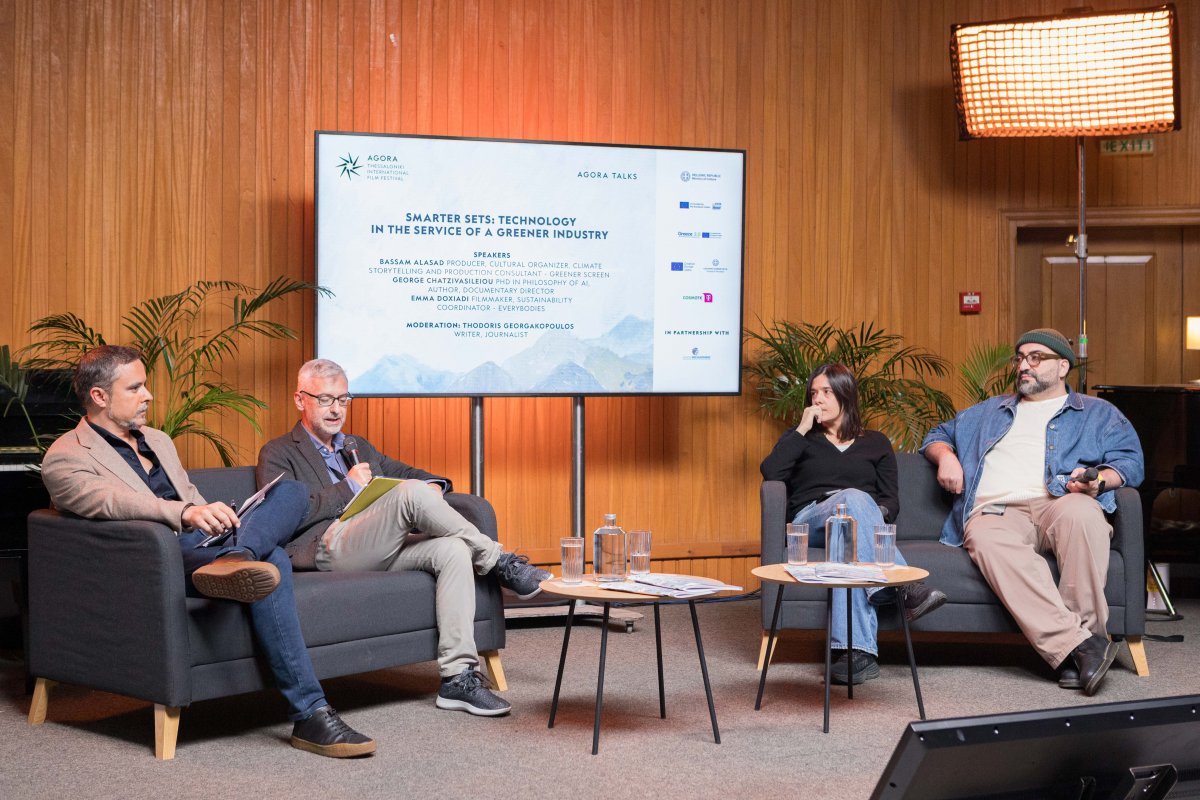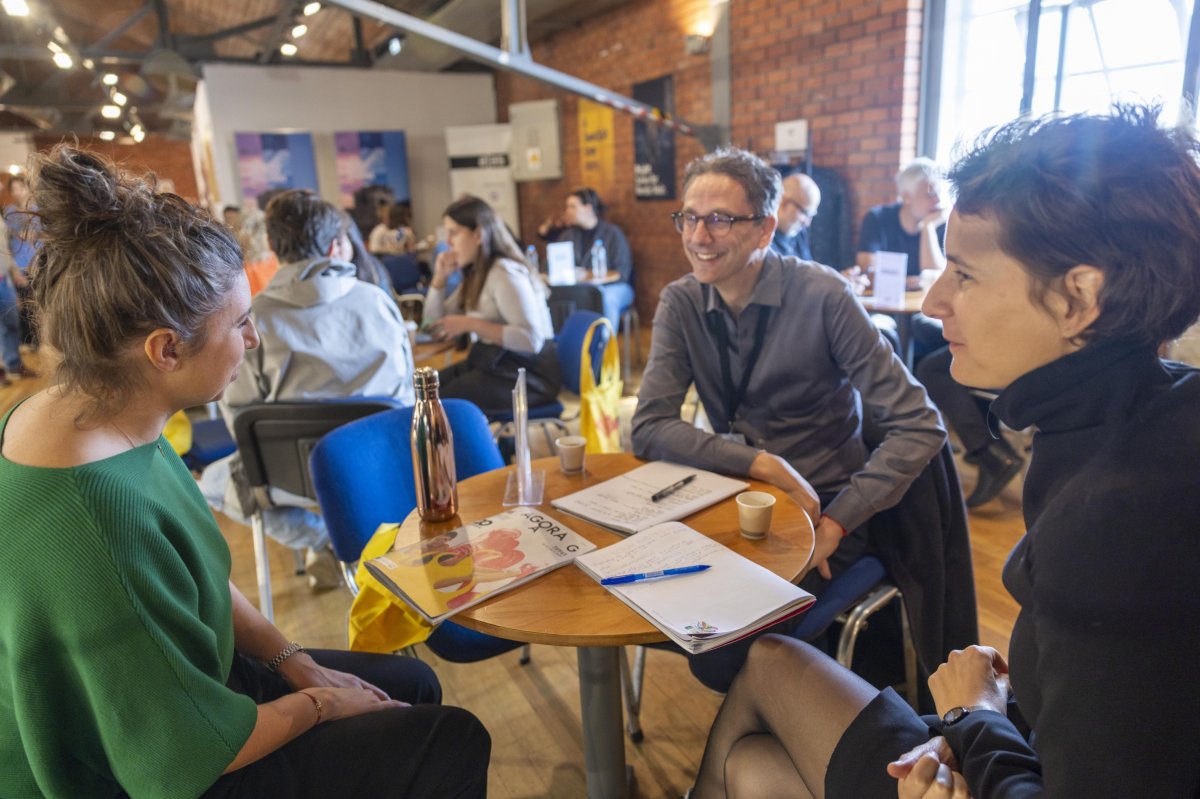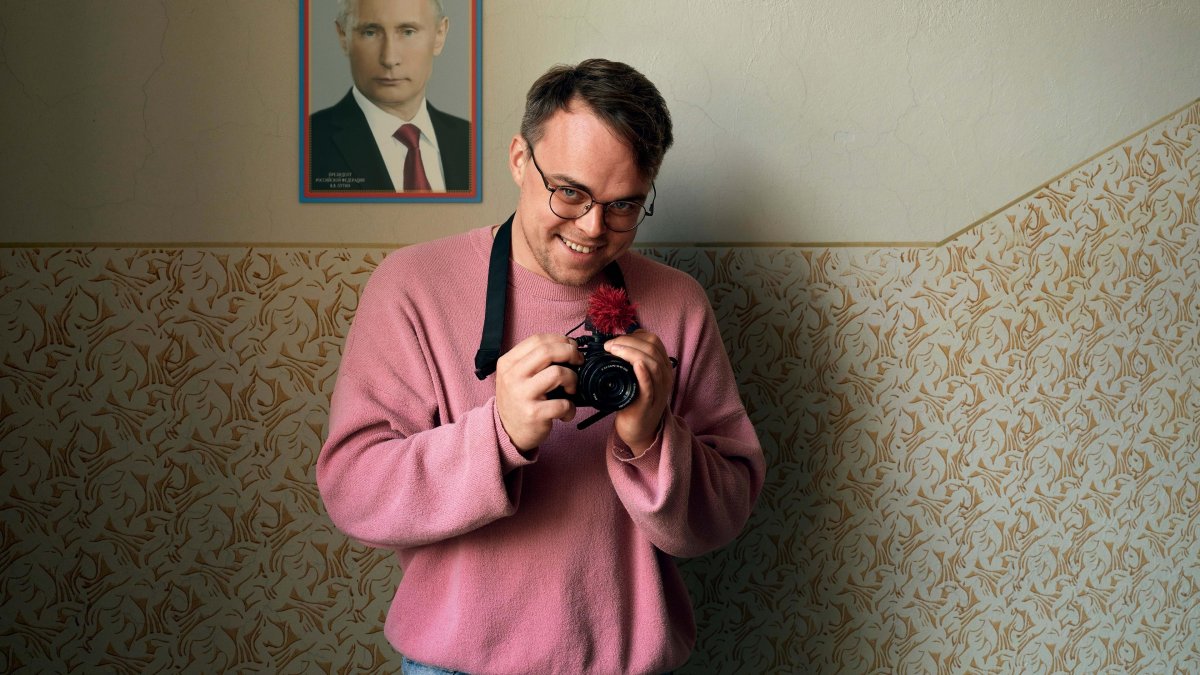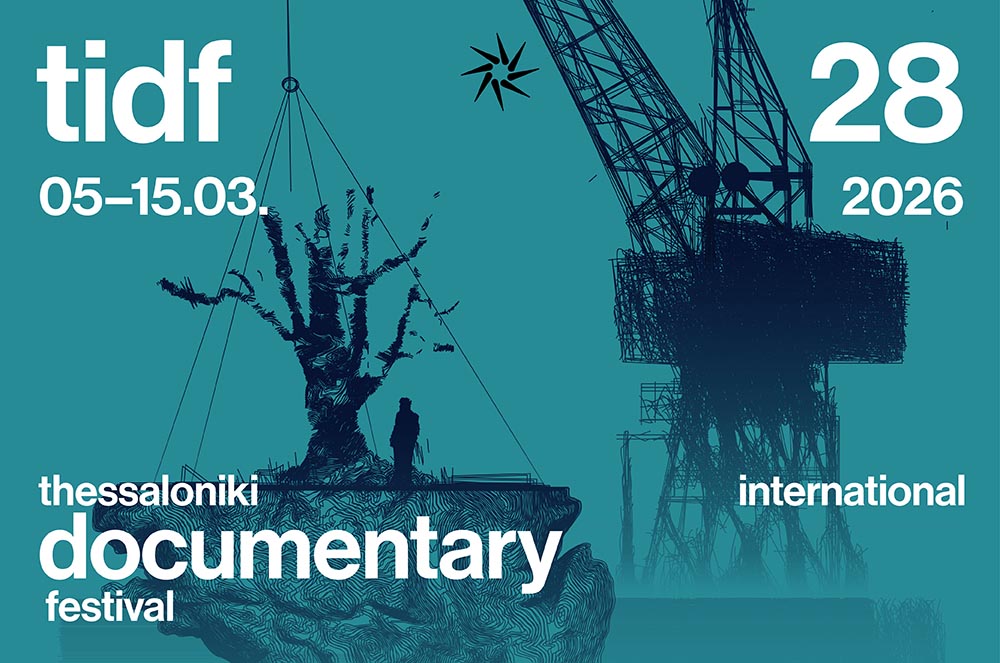The discussion “Smarter Sets: Technology in the Service of a Greener Industry” took place on Wednesday, November 4, at the Event Hall of the Thessaloniki Music Center, as part of the 66th TIFF’s Agora Talks. The panel, moderated by journalist Theodoris Georgakopoulos, featured Bassam Alasad (Producer, Cultural Organizer, Climate Storytelling and Production Consultant – Greener Screen), George Chatzivasileiou (PhD, Philosophy of AI, Author and Documentary Director), and Emma Doxiadi (Filmmaker, Sustainability Coordinator – Everybodies). The discussion focused on how contemporary technologies — particularly Artificial Intelligence (AI) — can promote ecological sustainability in film production. The speakers explored how virtual production and data-driven decision-making help filmmakers assess environmental impact and implement greener practices without compromising creativity.
Opening the conversation, Theodoros Georgakopoulos emphasized that the session would address the environmental challenges faced by the industry and the AI-driven innovations designed to reduce energy consumption, minimize waste, and streamline production workflows. Bassam Alasad highlighted that the film industry is among the most environmentally impactful sectors and underscored the need for “greener and smarter” sets. He identified three key areas of focus — energy, transportation, and materials — noting, “The idea behind world-creative production is to plan how we can reduce people's consumption.”
Emma Doxiadi pointed out that when it comes to government-driven incentives, the goal should be to facilitate a more holistic and structured adoption of sustainable practices. George Chatzivasileiou stressed the importance of maintaining an open dialogue about AI (its benefits, risks, and long-term implications), remarking that we are still witnessing the very beginning of its development. Alasad also shared practical examples of how he has used AI to make film sets greener and reduce carbon emissions, emphasizing the crucial role of film commissions. Doxiadi elaborated on the tools used throughout production, explaining: “We map all the stages of production, and break them down into actions we need to take. We quantify carbon approximations and employ circular models for recycling methods,” she said, noting that limited resources often pose a challenge. Chatzivasileiou further discussed AI’s role in research, its influence on artistic creation and filmmaking, and its anticipated impact on the job market in the coming years.
The conversation also explored forward-thinking strategies, examining how technology can serve not only as a creative tool but also as a catalyst for sustainable filmmaking; empowering the industry without diminishing artistic or technical quality. From the audience, Stavroula Geronymaki from the Hellenic Film Commission of the Hellenic Film and Audiovisual Center, responsible for Green Filming, highlighted the organization’s training programs on sustainability management in film production. The session concluded with a discussion on virtual production, sustainable practices across all production stages, and the implementation of green technologies.















